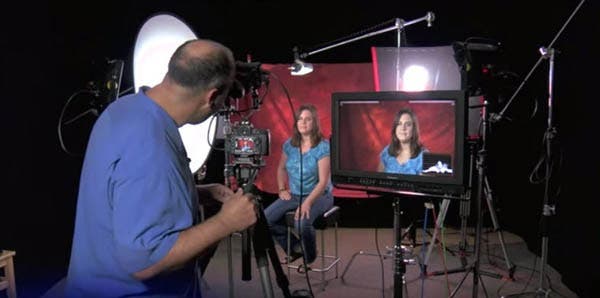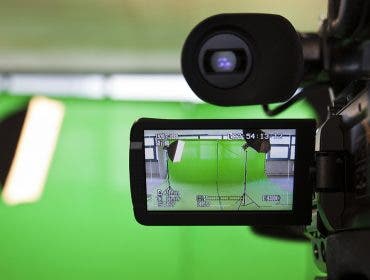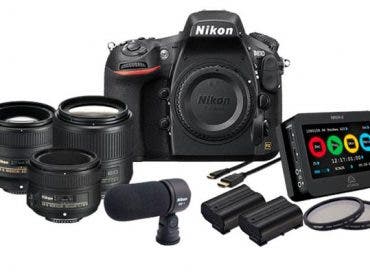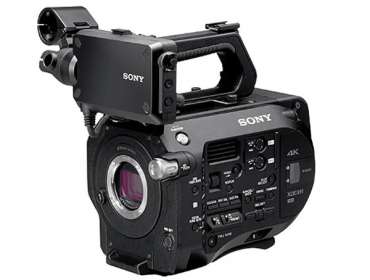So you booked your first paid gig. You need to prove to your client that they made the right call in hiring you. I’m going to help you make sure your first paid gig is a success and that your client will look to hire you again. Some of this advice will strike you as obvious, but after working in the field for twelve years, you will be surprised at how many times I have come across people who do not follow the basics that will get them booked again. I covered the equipment you need for your first paid gig and touched on a few tips. This post is a continuation of that advice.
1. Communicate
Clear, constant communication is the key to any good relationship and communicating with your client is no exception. You need to make sure you and your client are on the same page before the first frame is shot. You should meet them to discuss story, themes, tone and production timelines. Find out what they hope to achieve and what they hope will be the end result of their work. Do they want the viewer to visit their website, forward their video to their contacts or purchase tickets to an event? Ask tons of questions and take notes. Make sure to keep open lines of communication throughout the entire process and even after you have completed the project. When in the edit make sure you keep them updated. Many clients can get nervous about delivery deadlines. If you find that you will miss your deadline, let them know, do not just push off telling them. They will respect you much more if you are upfront and honest instead of falling off the face of the earth.
2.Confirm
Confirm everything in writing with your client. You should draft a contract detailing who is responsible for what. How many shoot days, is equipment included, who is responsible for catering, how many revisions, are you going to request a deposit?What are the costs if they require extra shooting or editing time? What is the delivery date if the client meets their deadline for revision notes? In what format do they want the final product? I’m not a lawyer, so I can’t offer you a contract template, but they can be found online and then modified to fit your needs. Though at some point hiring a lawyer wouldn’t be a bad idea.
3.Check
Making sure you are ready for whatever surprises get thrown your way comes down to two things: experience and preparation. Experience comes with time, but you can always be as prepared as possible. Check with your crew. Does everyone know their call time and location? Check your batteries and media and check your equipment at least one business day before your shoot. Make sure you have enough time to get or fix anything you need for the shoot. Media can get corrupted, batteries can stop charging, maybe you forgot that you loaned a buddy your tripod plate (that has definitely never happened to me :-P). Always have backups of everything you can’t work without. Have an extra baseplate in your tripod bag, have more batteries and media than you need for your longest projected shoot, and check your camera. Make sure your camera is working perfectly. Roll a test shot and review it. Always be checking (ABC).
4. Know Your Gear
Know as much as you can about every aspect of your gear. RTM – Read the Manual. You never know when you will need to know some of the more obscure information in that manual. You don’t want to look like you just picked up the camera or other equipment for the first time on set. There are many equipment related issues that can crop up on a shoot, below are several of the most glaring problems to watch out for that can ruin a shoot.
- Media -One of the worst mistakes you can make is to record over or format media that hasn’t been offloaded. If you can’t afford to have enough cards to last your entire shoot without reusing them, be 1000% sure before you record over any footage. Have a laptop on set that can access your media. I have seen an entire day’s work be lost to carelessness. Check, then double check and have someone else verify.
- Video Gain–Always check your gain level isn’t set higher than you need. On many videocameras there are three gain switch positions L, M, H (low, medium, high). I have seen a few takes ruined because the camera operator didn’t realize the gain was set too high from a previous shoot.
- Internal/External Mic– I made this mistake once very early on in my career. Always make sure you are getting sound from your desired mic rather than the camera’s internal mic. If the audio you are monitoring sounds off, check this first.
- Line/Mic switch– There are two positions for mic inputs Line and Mic. The Line switch should be used when your input is coming from an output such as a sound board. The switch should be set to Mic for most microphones which need amplification, such as lavaliers and handheld mics. If you are getting levels that are too high or too low, check this first then check what level you have the input set to, usually a number from 0 to 10. No it doesn’t go to 11.
- White balance – Make sure you check that your white balance is correct every time there is a change in light. This will help you or your editor tremendously in the edit.
5.Manage Your Time
Meet your expectations regarding time. It is a cliché but, time is indeed money. Show up early and be ready to roll before your scheduled start time. I always allow for a 30 minute buffer just to be safe. Another issue in regards to time is scheduling. Early on you may believe you can get a lot more done than is actually possible. In general things take twice as long as you expect. People flub lines and set ups take longer than expected. You will get better with time estimation as you get more experience, but in the beginning my advice is to allow way more time than you believe you need.
Another integral aspect of time management you need to maintain is the ever looming deadline. You have only so many working hours in a day and you will have competing priorities. If you struggle with time management, there are many methods people use to become more effective and to keep track of their projects and time. I use an app called Toggl to track how long I am spending on each part of any given project so I can better estimate time for similar jobs in the future. Reviewing my reports of time spent shows where I could be more efficient with my time, how much I am earning per hour spent working and teaches me to better plan for jobs.
6.Be Professional
Being professional is a mindset. While you can be friends with your clients, there should always be an understanding that you will treat your client and their needs in a professional manner. You build your business one client at a time. If you make a promise, keep it. Simple right? It won’t be. You will find yourself literally losing sleep trying to make good on your promises. However, the trust you engender when you make and keep promises is a huge determining factor when a client is deciding to either go with someone they know and trust or take a chance on someone they have never worked with before.
7. Don’t Oversell (i.e. don’t lie)
If someone asks you if you can DP a short film and you have never worked on a short before, let them know. I’m not saying to turn it down, just make sure you are honest in your dealings. You may think that you can fake it to you make it, and there is a chance you may get away with it, but if you don’t you will have burned a bridge. I’ve found that people are very accepting of honesty and willing to give people a shot.
8. Stay Organized
Keep on top of tasks, keep track of appointments, keep a log of shots, and take production photos for continuity. Being organized helps keep the chaos that can be running a production from driving you insane. I create lists for each production I work on to make sure I know exactly what I need to do, when I need to do it by and who else I need to inform about it the task or responsibility. I have pre-production checklists, equipment checklists and shot lists to keep myself on track and help with number 3 on this list, checking.
9. Be Flexible
Bruce Lee has a great speech where he tells the viewer they must be like water. Check it out here.Water is adaptable. It takes the shape of the container it is placed in. You will be presented with many situations that will challenge you. Adversity can bring about amazing results. Learn to make the best of bad situations and your client will not only use you again, they will rely on you. You build lifelong partnerships if you can learn to make sure that when you are faced with a challenge, such as an actor not showing up or a light truck being delayed, that you can still make things work. Flexibility is one of the greatest tools a filmmaker can have.
10. Learn
Every job is a learning opportunity. You will only get better with time if you take to heartthe lessons that job you just completed has just taught you. This list is a compilation of things I have learned over time and adjustments I have made to make sure I do my best work with the least amount of wasted time. Keep learning new ways to do things, be open to crew members’ suggestions and learn from others. Read blogs, watch videos, subscribe to magazines and look for new and interesting ways to make your productions that little bit better.





